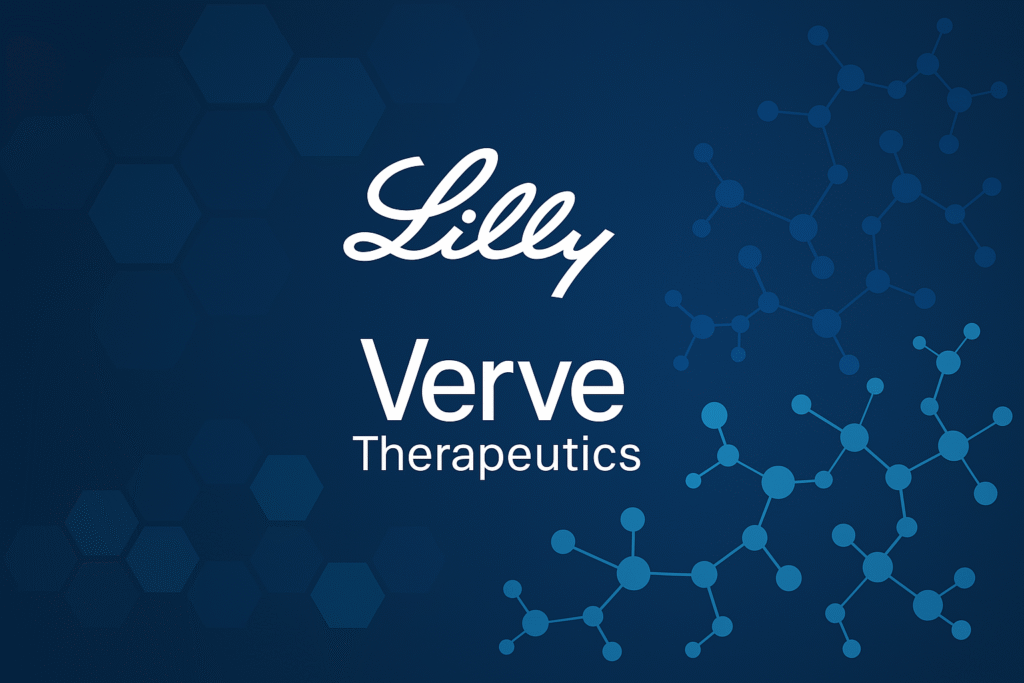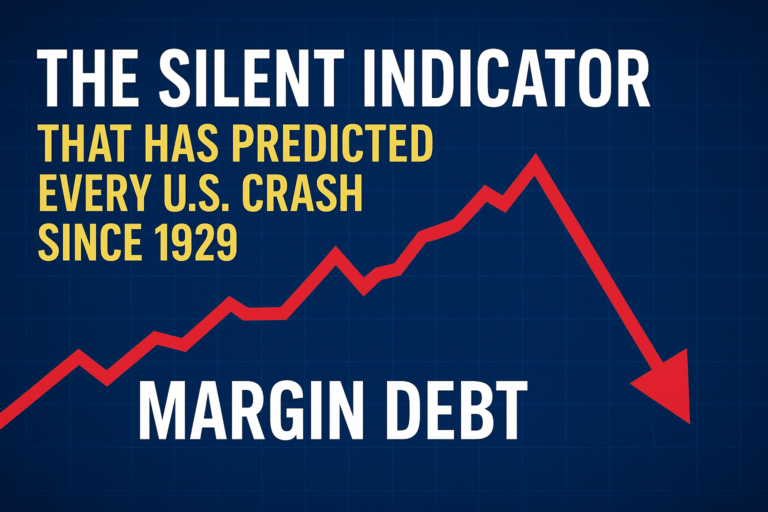
In This Article
Eli Lilly and Company (NYSE: LLY) has announced a definitive agreement to acquire Verve Therapeutics (NASDAQ: VERV), a pioneer in gene-editing therapies for cardiovascular disease, for $1.3 billion. The acquisition centers on Verve’s flagship base-editing program, VERVE-102, aimed at transforming the treatment landscape for high cholesterol and heart disease.
Here are the top three strategic reasons behind the move:
1. VERVE-102: A Potential One-Time Cure for High LDL Cholesterol
At the heart of the deal is VERVE-102, Verve’s most advanced program targeting the PCSK9 gene. Delivered via an in vivo base-editing technique, the drug is designed to permanently switch off the PCSK9 gene in liver cells, reducing the production of LDL cholesterol (“bad cholesterol”).
Unlike conventional PCSK9 inhibitors like Repatha or Leqvio, which require repeat dosing, VERVE-102 offers a one-and-done infusion. In Phase 1 trial data released in April 2024, the therapy reduced LDL-C significantly.
These results significantly exceed those of traditional PCSK9 therapies, and offer the potential for long-term, durable cholesterol control with a single treatment.
2. A Clean Safety Profile and Regulatory Momentum
Lilly’s confidence in Verve is supported by the latest Phase 1b Heart-1 trial results, which confirmed:
- No treatment-related serious adverse events (SAEs)
- No significant lab abnormalities
- A clear dose-dependent efficacy response
After pausing a different base-editing program due to concerns around a lipid nanoparticle (LNP) delivery vehicle, Verve switched to a new LNP formulation for VERVE-102. The switch proved successful, helping the company establish a cleaner safety profile and regain regulatory momentum.
In the words of Dr. Ruth Gimeno, Lilly’s group vice president for diabetes and metabolic R&D:
“VERVE-102 has the potential to be the first in vivo gene-editing therapy for broad patient populations and could shift the treatment paradigm for cardiovascular disease from chronic care to one-and-done treatment.”
This aligns with Lilly’s broader strategy to leapfrog traditional treatment models and embrace durable genetic cures.
3. Strategic Fit in Lilly’s Expansion into Next-Gen Therapies
The Verve acquisition is part of a broader M&A wave for Lilly in 2024. Earlier this year, it acquired Scorpion Therapeutics and its PI3Kα inhibitor program for $2.5 billion, reinforcing its position in precision oncology. With Verve, Lilly is doubling down on next-gen gene-editing as a major growth pillar in cardiometabolic disease.
In addition to VERVE-102, Verve is advancing a pipeline therapy targeting the ANGPTL3 gene—another cholesterol-linked gene—using the same base-editing platform. This opens up a broader portfolio potential in cardiovascular and metabolic health.
With strong cash flows from its diabetes and obesity blockbusters like Mounjaro and Zepbound, Lilly is strategically positioned to fund and scale next-wave innovations like gene editing.
In summary, Lilly’s $1.3 billion acquisition of Verve Therapeutics is more than a pipeline play—it’s a bold step into the future of cardiovascular medicine. The top drivers include:
- A potentially curative, one-time PCSK9 gene-editing therapy (VERVE-102)
- Strong clinical and safety data, supported by updated LNP delivery
- A strategic shift toward long-duration, genetic solutions for cardiometabolic diseases
The deal is expected to close in Q3 2025, pending regulatory approvals. If successful, this could set a new standard in how we treat—and possibly cure—atherosclerotic cardiovascular disease.




